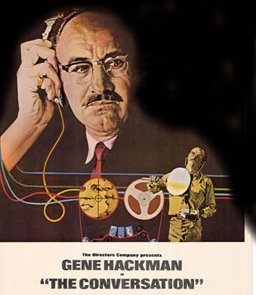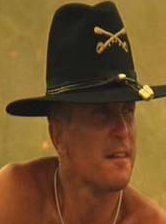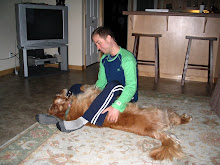The Conversation
 Just watched an interesting movie last night. I've been on a Francis Ford Coppola kick the past few weeks, so I picked up The Conversation; I had heard of it before, but not a lot; just that it was a minor classic that was well-known to cinophiles. The fact that it came out the same year as Godfather II must have something to do with its limited visibility. (though of course it was nominated for Best Picture that year, when Godfather II won, so what do I know?) Leonard Maltin called it one of the best movies of the 70s, however, high praise considering that decade is one of the golden ages of Hollywood cinema.
Just watched an interesting movie last night. I've been on a Francis Ford Coppola kick the past few weeks, so I picked up The Conversation; I had heard of it before, but not a lot; just that it was a minor classic that was well-known to cinophiles. The fact that it came out the same year as Godfather II must have something to do with its limited visibility. (though of course it was nominated for Best Picture that year, when Godfather II won, so what do I know?) Leonard Maltin called it one of the best movies of the 70s, however, high praise considering that decade is one of the golden ages of Hollywood cinema.Gene Hackman plays Harry Caul, a surveillance expert who has been hired to reco
 rd the conversation of a young couple walking around in a crowded
rd the conversation of a young couple walking around in a crowded Like any good piece of art, a discussion of this movie could go in any number of directions: questions of perspective and interpretation; the culpability of those who are 'just following orders' or 'just doing their jobs,' when the outcome of those actions lead to immoral acts; the unreliable narrator/protagonist, in this case one who descends further and further into delusional paranoia; even a Kafkaesque bureaucracy (mirroring the theme of personal responsibility) headed by a shadowy figure known only as "The Director." These are all interesting topics; a suitably inspired individual could write a book about this movie, with each of those themes composing its own chapter. For now I'm going to try to narrow in on the theme that I think is at the heart of the movie, that the other scenes eminate from, in a way.
 Conversation has often been compared to Hitchcock; it is a suspenseful psychological thriller in the vein of Vertigo (and one of its most famous scenes involves a large quantity of blood in an extremely white bathroom). One of the ways in which it most mirrors Hitchcock is the use of Watcher and Watched to represent movie audiences and (most specifically) movie directors. Hitchcock's two most widely acknowledged masterpieces are Vertigo and Rear Window, and both of them play extensively with this dynamic. Hitchcock called Vertigo his most autobiographical piece; it's a fascinating study in (among other things) controlling every aspect of a person; how they dress, move, speak...with being the director of a movie, in short.
Conversation has often been compared to Hitchcock; it is a suspenseful psychological thriller in the vein of Vertigo (and one of its most famous scenes involves a large quantity of blood in an extremely white bathroom). One of the ways in which it most mirrors Hitchcock is the use of Watcher and Watched to represent movie audiences and (most specifically) movie directors. Hitchcock's two most widely acknowledged masterpieces are Vertigo and Rear Window, and both of them play extensively with this dynamic. Hitchcock called Vertigo his most autobiographical piece; it's a fascinating study in (among other things) controlling every aspect of a person; how they dress, move, speak...with being the director of a movie, in short.

Robert Duvall and Teri Garr in what amount to cameo roles:
And the old Coppola favorite, Fredo himself, John Cazale, second-billed to the master Gene Hackman:
The pacing is slow at times, and there's this mime who desperately needs to get his ass kicked (if you don't know why everyone hates mimes, this movie will show you), but overall it's an intriguing movie that works on a lot of levels.





0 Comments:
Post a Comment
<< Home